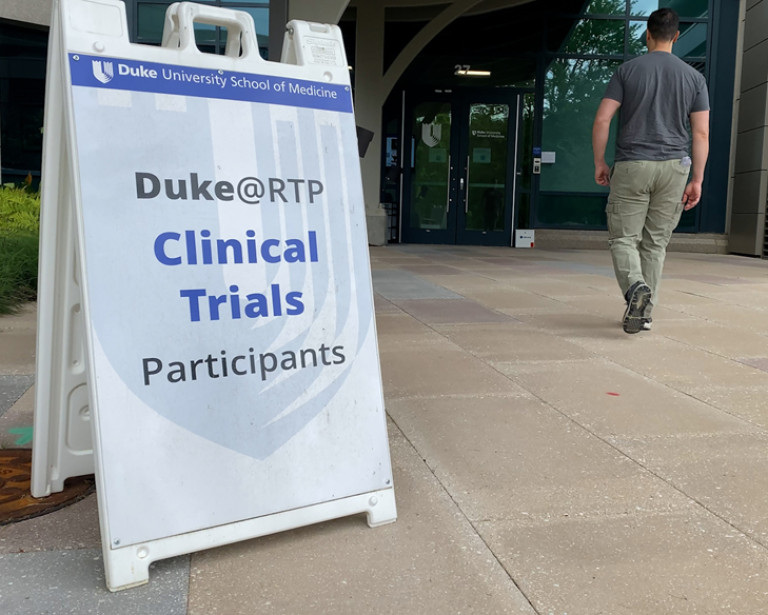
DURHAM, N.C. – Duke Health is leading its first clinical trial under a large federal initiative to develop a new-generation flu vaccine.
The phase 1 clinical trial, which launched last month, is testing the safety of a vaccine candidate devised under the Collaborative Influenza Vaccine Innovation Centers (CIVICs) program. CIVICs is a multi-million-dollar investment by the National Institute of Allergy and Infectious Diseases (NIAID), part of the National Institutes of Health, to develop a modern vaccine that provides longer and broader protection against both seasonal and pandemic influenza viruses.
The Duke Human Vaccine Institute (DHVI) has several large contracts under the CIVICs program, including contracts to manufacture vaccine candidates and lead clinical trials. Emmanuel “Chip” Walter, M.D., chief medical officer and director of the Duke Vaccine and Trials Unit at DHVI, is the principal investigator leading the clinical trials.
“During the course of a flu season, the influenza virus drifts, undergoing small, but significant changes that make current vaccines less effective,” Walter said. “We are hopeful that this vaccine could offer protection across those sorts of changes.”
Walter said the investigational vaccine uses mRNA technology. The vaccine was developed by NIAID’s Vaccine Research Center and manufactured at DHVI’s facility. A protein immunogen version of the vaccine has already been tested by the Vaccine Research Center in a phase 1 clinical trial.
Walter said Duke will enroll a total of 50 participants in the trial. Three different dosage levels will be tested for safety and optimum protection, with 10 participants enrolled at each level. Another 10 participants will be enrolled to test the optimal dosage, and the final 10 participants will receive the current flu vaccine as a control group to compare immune responses.
Study participants must be healthy adults between the ages of 18 and 49, and participants will be monitored for a year.
The trial’s main objective is to evaluate the safety of each dose. A secondary goal is to assess the immune response at each level and, finally, the researchers will gauge how long the immune response lasts and whether it’s effective over time once the virus has undergone the small drift changes.
"This is an exciting moment – really the first product to come to manufacturing out of the CIVICs program,” Walter said. “As we continue to test additional vaccine candidates, we move closer to the ultimate goal of modernizing the flu vaccine in a way that provides better, longer-lasting protection against a virus that kills hundreds of thousands of people worldwide each year.”
This project is funded under an NIAID contract award (75N93019C00054).